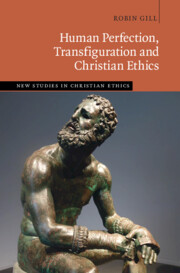Refine search
Actions for selected content:
3 results
Introduction
-
- Book:
- Human Perfection, Transfiguration and Christian Ethics
- Published online:
- 09 May 2024
- Print publication:
- 16 May 2024, pp 1-14
-
- Chapter
- Export citation
Chapter 7 - Perfection and the Transfiguration
- from Part III - Transfiguration and Global Perfection
-
- Book:
- Human Perfection, Transfiguration and Christian Ethics
- Published online:
- 09 May 2024
- Print publication:
- 16 May 2024, pp 147-168
-
- Chapter
- Export citation

Human Perfection, Transfiguration and Christian Ethics
-
- Published online:
- 09 May 2024
- Print publication:
- 16 May 2024
